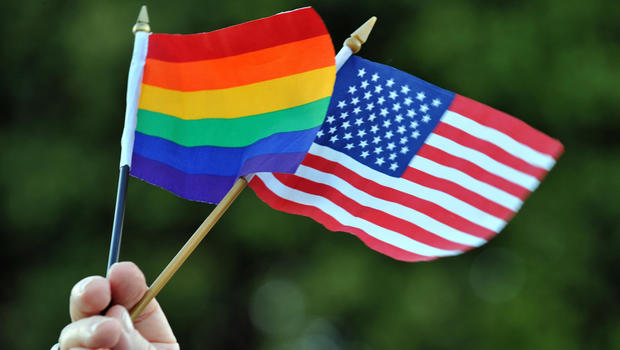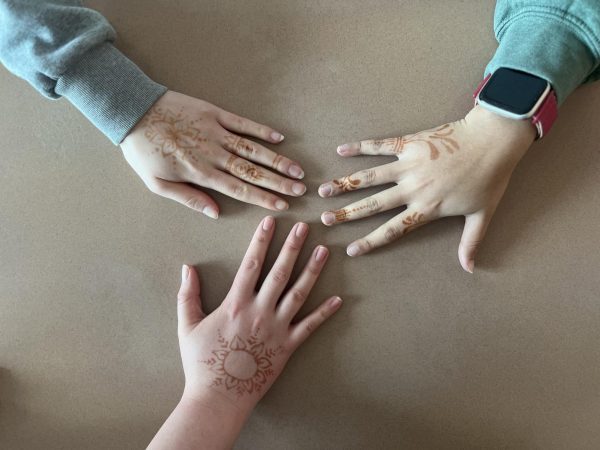Supreme Court takes on same sex marriage cases
On Jan. 16, the Supreme Court accepted cases from Michigan, Ohio, Kentucky, and Tennessee to resolve the issue of same sex marriage for all states. The outcome of this case will decide whether or not same sex marriage is legal or illegal for all states.
Even though most York students don’t plan on getting married anytime soon, strides are being taken to promote equality for everyone.
“When you look at how many individual states had gay marriage banned and had them overturned, it makes sense at this point for the Supreme Court to address the issue and then hopefully be done with wasting so much time in the courts fighting for basic human rights,” said Mrs. Thompson, a college and career counselor and co advisor of AS.IS.
York Community High School has also taken steps to support the LGBT community through student clubs. One such club is AS.IS, which stands for “Accepting Sexual Orientation In School.” The main purpose for AS.IS is to reduce homophobic behavior, combat bigotry, and build tolerance and respect among the York community, as stated in their club website.
Out of all 50 states, same sex marriage is legal in 37: 25 of them based on court decision, 8 based on state legislature, and 3 based on popular vote. The other 15 states ruled same sex marriage unconstitutional based on constitutional amendment and state law, according to CNN.
The Supreme Court took up a similar case back in 2013, but chose not to decide on this issue, even as it struck down part of a federal anti-gay marriage law, which in turn, allowed for various lower court rulings across the country to vote in favor of same sex marriage rights, according to the Associated Press.
This time, the Supreme Court will decide the issue by holding 150 minutes of oral arguments this April and coming to a decision when the current term ends in late June. In these cases, the Supreme Court will address two questions: Does the 14th Amendment require a state to license a marriage between two people of the same sex? And, does the 14th Amendment require a state to recognize a marriage between two people of the same sex when their marriage was lawfully licensed and performed out of state?
“If same sex marriage is not passed, it will create another wave of work on the part of advocates who believe in equal rights for all people,” said Mrs. Thompson, “If they do, the people who don’t believe it should be right for same sex marriage will step up and speak out.”
Mr. Golebiowsky, a Chemistry teacher as well as co advisor of AS.IS, also adds that if same sex marriage were to be legalized, life for everyone will go on like normal since marriage is a basic right for everyone regardless of their sex
On Jan. 16, the Supreme Court accepted cases from Michigan, Ohio, Kentucky, and Tennessee to resolve the issue of same sex marriage for all states. The outcome of this case will decide whether or not same sex marriage is legal or illegal for all states.
Even though most York students don’t plan on getting married anytime soon, strides are being taken to promote equality for everyone.
“When you look at how many individual states had gay marriage banned and had them overturned, it makes sense at this point for the Supreme Court to address the issue and then hopefully be done with wasting so much time in the courts fighting for basic human rights,” said Mrs. Thompson, a college and career counselor and co advisor of AS.IS.
York Community High School has also taken steps to support the LGBT community through student clubs. One such club is AS.IS, which stands for “Accepting Sexual Orientation In School.” The main purpose for AS.IS is to reduce homophobic behavior, combat bigotry, and build tolerance and respect among the York community, as stated in their club website.
Out of all 50 states, same sex marriage is legal in 37: 25 of them based on court decision, 8 based on state legislature, and 3 based on popular vote. The other 15 states ruled same sex marriage unconstitutional based on constitutional amendment and state law, according to CNN.
The Supreme Court took up a similar case back in 2013, but chose not to decide on this issue, even as it struck down part of a federal anti-gay marriage law, which in turn, allowed for various lower court rulings across the country to vote in favor of same sex marriage rights, according to the Associated Press.
This time, the Supreme Court will decide the issue by holding 150 minutes of oral arguments this April and coming to a decision when the current term ends in late June. In these cases, the Supreme Court will address two questions: Does the 14th Amendment require a state to license a marriage between two people of the same sex? And, does the 14th Amendment require a state to recognize a marriage between two people of the same sex when their marriage was lawfully licensed and performed out of state?
“If same sex marriage is not passed, it will create another wave of work on the part of advocates who believe in equal rights for all people,” said Mrs. Thompson, “If they do, the people who don’t believe it should be right for same sex marriage will step up and speak out.”
Mr. Golebiowsky, a Chemistry teacher as well as co advisor of AS.IS, also adds that if same sex marriage were to be legalized, life for everyone will go on like normal since marriage is a basic right for everyone regardless of their sex.








